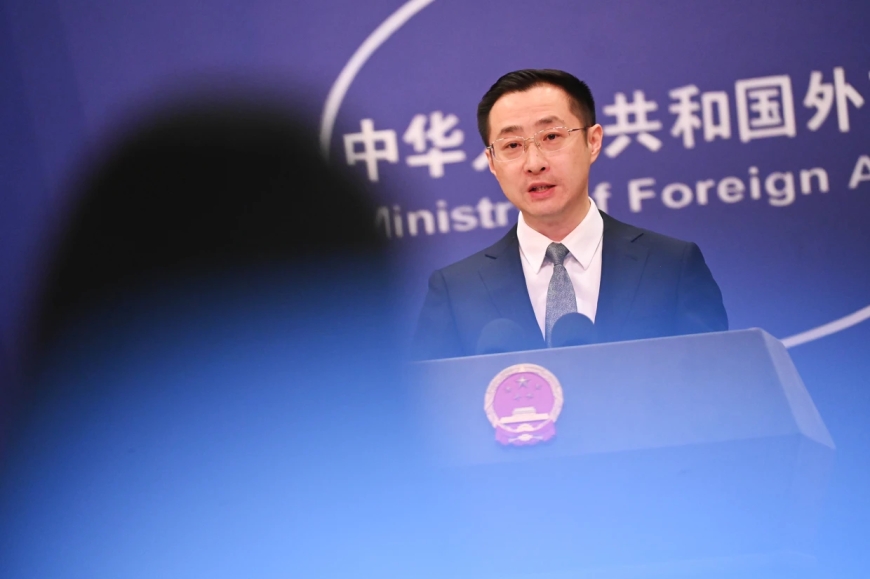China Halts Nuclear Arms Control Talks with the U.S. Over Taiwan Arms Sales
China has suspended nascent nuclear arms control talks with the United States, citing Washington's recent arms sales to Taiwan—a move Beijing views as a severe breach of its sovereignty

China has suspended nascent nuclear arms control talks with the United States, citing Washington's recent arms sales to Taiwan—a move Beijing views as a severe breach of its sovereignty. This decision, announced by the Chinese Foreign Ministry, represents a significant obstacle to global arms-control efforts and aligns China with Russia in refusing dialogue on nuclear arms reduction with the U.S.
Lin Jian, the spokesperson for China’s Foreign Ministry, conveyed Beijing’s discontent in a press briefing, asserting that repeated U.S. arms sales to Taiwan have “seriously compromised the political atmosphere” necessary for arms-control discussions. Lin emphasized that the suspension of talks is a direct consequence of Washington’s actions and placed full responsibility for the impasse on the U.S. government.
“The U.S. must respect China’s core interests and create necessary conditions for dialogue and exchange,” Lin stated. While China remains open to international arms control discussions, it insists that Washington must first address its grievances related to Taiwan.
U.S. Response and Strategic Implications
U.S. State Department spokesperson Matthew Miller criticized China’s decision, suggesting that it mirrors Russia's approach of linking arms-control discussions with broader bilateral tensions. “This approach undermines strategic stability and increases the risk of an arms race,” Miller warned. He emphasized that despite China’s suspension, the U.S. remains committed to pursuing risk-reduction measures and engaging in meaningful dialogue to manage strategic risks.
The suspension comes amid ongoing U.S. efforts to maintain a policy of “compartmentalization,” where nuclear arms control is treated separately from other contentious issues in the Sino-U.S. relationship. This policy is intended to keep arms-control negotiations distinct from disputes over Taiwan and other strategic areas.
Context and Implications for Global Arms Control
The halt in discussions is a notable setback for global arms control, especially given the urgent need for dialogue among the world's major nuclear powers. Daryl Kimball, Executive Director of the Arms Control Association, remarked on the gravity of the situation. “The refusal of both Russia and China to engage in serious dialogue on arms control represents a significant blow to efforts aimed at preventing a new arms race,” he said.
Recent reports highlight the growing nuclear arsenals of both China and Russia. The U.S. estimates that China currently possesses around 500 operational nuclear warheads, with projections indicating that this number could exceed 1,000 by 2030. In comparison, the U.S. has approximately 3,700 nuclear warheads, with 1,419 of these being strategic, while Russia's arsenal includes about 1,550 deployed warheads out of a total stockpile of 4,489, according to the Federation of American Scientists.
Taiwan Arms Sales and Geopolitical Tensions
The backdrop of this diplomatic friction is the ongoing tension over Taiwan. The U.S. is Taiwan’s principal international supporter and arms supplier, despite the absence of formal diplomatic ties. Beijing has persistently demanded an end to these arms sales, viewing them as provocative and contrary to its sovereignty claims.
Taiwan has also been facing heightened military activity from China, including frequent incursions by Chinese aircraft and naval vessels. This increased activity has fueled concerns about the island’s security and the broader implications for regional stability.
China's suspension of nuclear arms control talks with the U.S. marks a critical juncture in international arms control diplomacy. The decision underscores the deepening geopolitical rift between Washington and Beijing, exacerbated by contentious issues like Taiwan and ongoing global arms proliferation. As the U.S. and China navigate this complex landscape, the international community remains watchful, hoping for renewed dialogue and a return to cooperative arms control efforts.













































